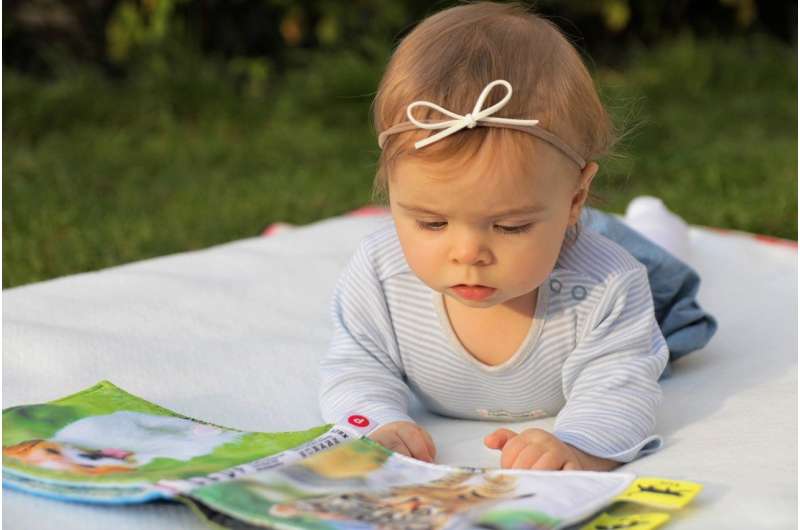Infants as young as 17 months expect fairness and equity

Children as young as 17 months recognise whether resources are being shared fairly, the first time researchers have found evidence that infants so young are sensitive to principles of "distributive justice".
Dr. Annette Henderson and Dr. Ying Wang from the University of Auckland's School of Psychology studied 84 infants using a dedicated video lab where the infants were shown a sequence of different short scenes played out by two puppets.
In all of the scenes, the puppets worked together to access an out-of-reach bowl of sweets using plastic stacking cups. After they got the bowl, the puppets divided the sweets up between themselves.
Scenes shown demonstrated principles of distributive justice (the puppet putting in most of the work takes most sweets) while other scenes showed disproportionate rewards (one puppet does more work but takes fewer sweets).
A hidden video camera recorded each child's response to the scenes played onscreen, measuring "looking time" – the length of attention paid to each scene.
Responses were recorded and analysed using a dedicated software programme. The researchers expected that infants would spend more time looking at scenes that violated justice principles compared to those that did not.
They found infants looked longer at scenes where the puppet who contributed more work took fewer sweets but, critically, not when the puppet who did most of the work took the biggest share.
"These findings suggest that infants didn't perceive events as a simple matter of negativity bias. That is, simple inequality in distribution did not attract their attention significantly but where rewards were unequally or unfairly distributed, the children paid more attention," Dr. Henderson says.
The research is the first time infants as young as 17 months have been tested on concepts such as equity and equality where the 'actors' could themselves decide how resources should be shared. Previous studies have found 21-month-olds were sensitive to principles of distributive justice but in those studies resources were distributed by a third party.
"These findings are significant as they demonstrate that a fairly nuanced understanding of fairness is present much earlier in development than previous research has shown," Dr. Henderson says. "By 18 months, infants expect individuals to take what that they deserve."
Dr. Wang says in everyday life, humans expect resources will be distributed equitably and this sense of fair play has evolved as a function of humans' cooperative propensity.
"These findings demonstrate that infants are ready to learn about fairness and sharing behaviours within the first year and a half of their lives. Finding ways to promote these behaviours early in life could be the key to enhancing fairness and prosocial behaviour in human social groups."
This research is published in the Journal of Experimental Child Psychology.
More information: Ying Wang et al. Just rewards: 17-Month-old infants expect agents to take resources according to the principles of distributive justice, Journal of Experimental Child Psychology (2018). DOI: 10.1016/j.jecp.2018.02.008



















